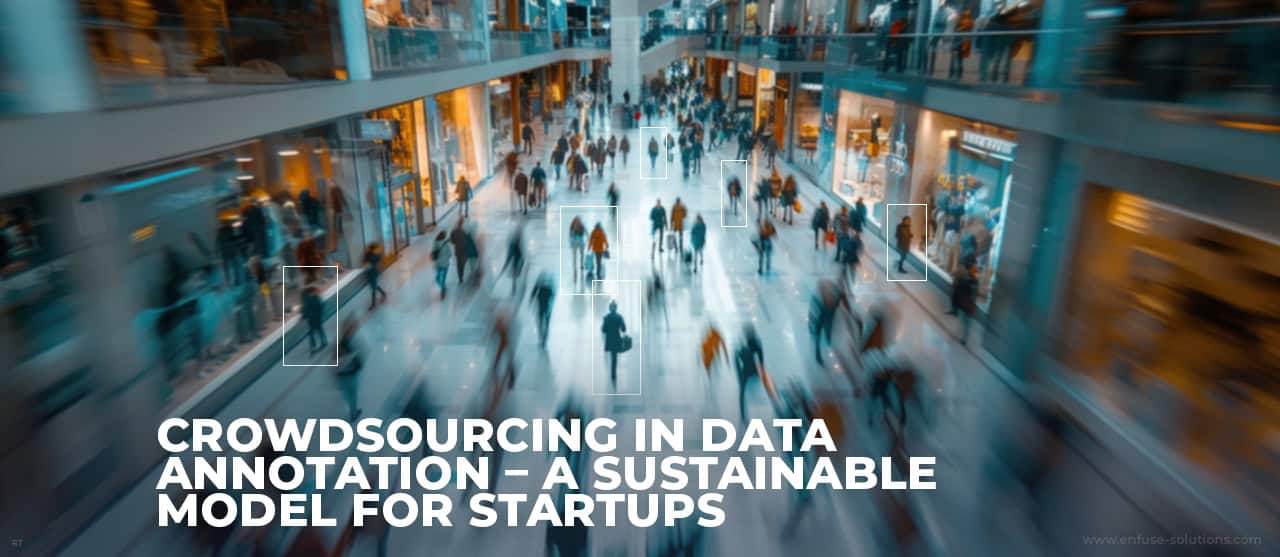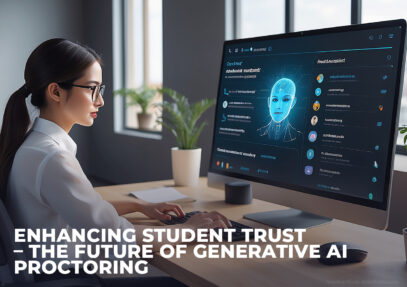
In the fast-evolving landscape of artificial intelligence (AI) and machine learning (ML), data is king. However, raw data alone cannot propel innovation; it must be meticulously annotated to train algorithms effectively. This is where data annotation steps in. For startups with limited budgets and resources, crowdsourcing has emerged as a sustainable model for data annotation.
By leveraging a global workforce, startups can ensure high-quality, scalable, and cost-effective data annotation while meeting tight deadlines.
Understanding Crowdsourcing In Data Annotation
Crowdsourcing in data annotation involves outsourcing the task of labeling data to a large group of individuals, often through online platforms. By democratizing the process, this decentralized strategy allows businesses to access a diverse talent pool. From image tagging and text labeling to video annotation, crowdsourcing can handle a wide range of annotation tasks.
Key Features Of Crowdsourcing For Data Annotation
- Scalability: Access to a global workforce enables rapid scaling to meet project demands.
- Cost-Efficiency: Crowdsourcing drastically lowers expenses as compared to employing in-house annotators.
- Flexibility: Freelancers and part-time contributors can be onboarded quickly to handle varying workloads.
- Diversity of Input: Annotators from different backgrounds provide varied perspectives, reducing bias in datasets.
Why Startups Should Embrace Crowdsourcing For Data Annotation?
Startups work in a high-stakes atmosphere where survival depends on creativity and adaptability. Crowdsourcing offers distinct advantages that align with the needs of startups:
1. Reduced Operational Overheads: Hiring and training an in-house annotation team can strain a startup’s limited resources. Crowdsourcing eliminates these overheads, enabling startups to allocate their budget more strategically.
2. Access To A Broad Talent Pool: Online platforms provide access to annotators with diverse expertise and language skills, ensuring high-quality results for multilingual and global AI projects.
3. Faster Turnaround Times: Crowdsourcing platforms operate around the clock, delivering annotated data faster than traditional models. For startups racing against time, this speed is invaluable.
4. Improved Focus On Core Competencies: By outsourcing annotation tasks, startups can dedicate more time to product development and innovation.
The Market Outlook For Crowdsourced Data Annotation
The global market for data annotation is expanding quickly. A report by Markets and Markets estimates that the market will expand from its 2022 valuation of $0.8 billion to $3.6 billion by 2027, growing at a CAGR of 33.2% from 2022 to 2027. This growth is driven by the increasing adoption of AI in sectors like healthcare, e-commerce, and autonomous vehicles.
A study by Global Growth Insights revealed that the image/video annotation segment accounted for over 55% of the market share due to the growing demand for autonomous vehicle training data. Similarly, text-based annotation is gaining traction in the healthcare sector, with applications in diagnostics and patient care. The Asia-Pacific region is expected to witness the fastest growth in the data annotation market, with a CAGR of 7.6% from 2024 to 2031, fueled by the rapid expansion of AI-driven startups.
Additionally, Gartner highlights that by 2026, more than 80% of enterprises will have leveraged GenAI APIs or models, and/or deployed GenAI-enabled applications in production environments, up from less than 5% in 2023, by hugely crowdsourcing their AI training datasets. This trend underscores the importance of scalable and sustainable data annotation models.
Challenges In Crowdsourcing And How To Overcome Them
While crowdsourcing offers numerous benefits, it is not without challenges. Startups must address these hurdles to fully harness their potential:
1. Quality Control: Crowdsourcing involves multiple annotators, which can lead to inconsistencies. Implementing rigorous quality assurance protocols, such as double-checking annotations and using consensus-based validation, is essential.
2. Data Security: Sharing sensitive data with a dispersed workforce poses security risks. Startups should use anonymized datasets and secure platforms to safeguard data.
3. Task Complexity: Complex annotation tasks may require specialized training. Startups can overcome this by providing clear guidelines and tutorials to annotators.
4. Communication Barriers: Working with a global workforce can lead to miscommunication. The use of collaboration tools and efficient project management can help to lessen this problem.
Best Practices For Implementing Crowdsourcing In Data Annotation
To maximize the benefits of crowdsourcing, startups should adopt these best practices:
1. Choose The Right Platform: Consider user base, functionality, and security protocols while evaluating crowdsourcing systems. Popular platforms like Amazon Mechanical Turk, Appen, and Toloka cater to diverse annotation needs.
2. Define Clear Objectives: Provide annotators with well-defined guidelines and examples to ensure consistency.
3. Leverage AI-Assisted Tools: Integrate AI-assisted annotation tools to reduce manual workload and improve efficiency.
4. Monitor Progress: Regularly track the progress of annotation tasks and provide feedback to annotators for continuous improvement.
5. Incentivize Quality Work: Reward annotators who consistently deliver high-quality results to foster motivation and accountability.
EnFuse Solutions: Your Partner In Crowdsourced Data Annotation
EnFuse Solutions stands out as a reliable partner for startups seeking sustainable data annotation services. With expertise in both manual and AI-assisted annotation, EnFuse combines scalability, quality, and security to deliver exceptional results. Their customized solutions serve a range of sectors, including retail, healthcare, and finance.
EnFuse’s crowdsourcing model ensures rapid project execution without compromising on quality. Their commitment to data security and adherence to global standards make them a trusted choice for startups looking to scale their AI initiatives.
Conclusion
Crowdsourcing in data annotation is more than just a cost-saving strategy; it is a sustainable model that empowers startups to innovate and grow. By leveraging the power of a global workforce, startups can access high-quality, scalable annotation services while focusing on their core business objectives.
As the demand for annotated data continues to rise, startups must act swiftly to adopt crowdsourcing as a part of their AI strategy. Partnering with experienced service providers like EnFuse Solutions can further amplify these benefits, ensuring success in a competitive market.
Ready to transform your data annotation process? Connect with EnFuse Solutions today and unlock the potential of your AI projects. Let’s build the future together!

















Comment